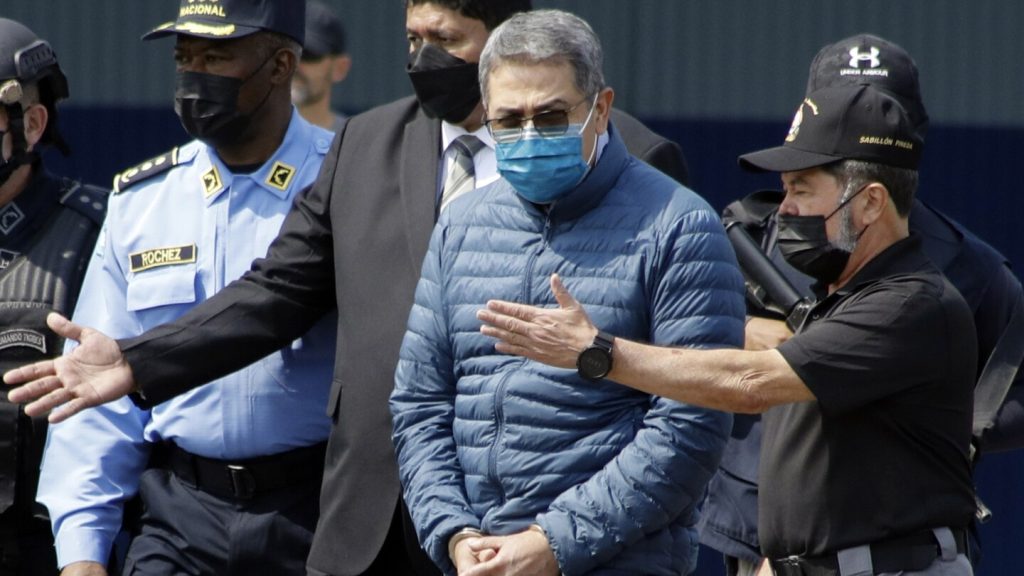In a high-profile case in New York, former Honduran President Juan Orlando Hernández was sentenced to 45 years in prison for conspiring with drug traffickers to smuggle over 400 tons of cocaine into the United States. Despite maintaining his innocence, Hernández was convicted by a jury and fined $8 million by Judge P. Kevin Castel. The judge emphasized that the sentence should serve as a warning to those in power who believe they are immune to justice. Hernández, who portrayed himself as an anti-drug trafficking crusader, was labeled by the judge as a “two-faced politician hungry for power” who protected a select group of traffickers.
After the sentence was announced, Hernández stood in court in a prison uniform and hobbled out with the help of a cane and a brace on one foot. Prosecutors had sought a life sentence for Hernández, who served two terms as the president of Honduras. He was arrested three months after leaving office and extradited to the U.S. in 2022. U.S. prosecutors accused Hernández of working with drug traffickers since 2004 and accepting millions of dollars in bribes as he climbed the political ladder in Honduras. Despite Hernández’s claims of being unjustly accused, the judge cited trial evidence that proved otherwise.
In Honduras, the sentencing of Hernández was seen as an important step in combating the social consequences of drug trafficking. U.S. Ambassador Laura Dogu emphasized that Hernández’s actions had caused suffering for the people of Honduras. However, Hernández’s wife, Ana García, maintained his innocence and called the sentencing a “judicial lynching.” She announced plans to run for president next year and expressed hope for her husband’s appeal. The trial witnesses included traffickers who admitted to numerous murders and implicated Hernández as a protector of powerful cocaine dealers, including “El Chapo” Guzmán.
During the sentencing, Assistant U.S. Attorney Jacob Gutwillig affirmed that no one, not even a former president, is above the law. The judge highlighted the fair trial process and the evidence presented to prove Hernández’s guilt, including his involvement in aiding drug traffickers for his own political survival. Castel described the staggering number of killings linked to the drug trade during Hernández’s political career and emphasized his selective assistance to traffickers who supported his ambitions. The sentencing of Hernández took place in a federal courthouse near where former U.S. President Donald Trump is scheduled to be sentenced for falsifying business records.
The case of Hernández highlights the intersection of politics and drug trafficking, revealing the deep connections between power and criminal activities. The sentencing sends a strong message that even high-ranking officials are not immune to prosecution for their involvement in illicit activities. The fallout from Hernández’s conviction is expected to have far-reaching implications in Honduras and beyond, as it underscores the importance of accountability and justice in combating organized crime and corruption at the highest levels of government. As the world watches the repercussions of Hernández’s downfall, the focus shifts towards the ongoing efforts to dismantle drug trafficking networks and hold those responsible accountable for their actions.


